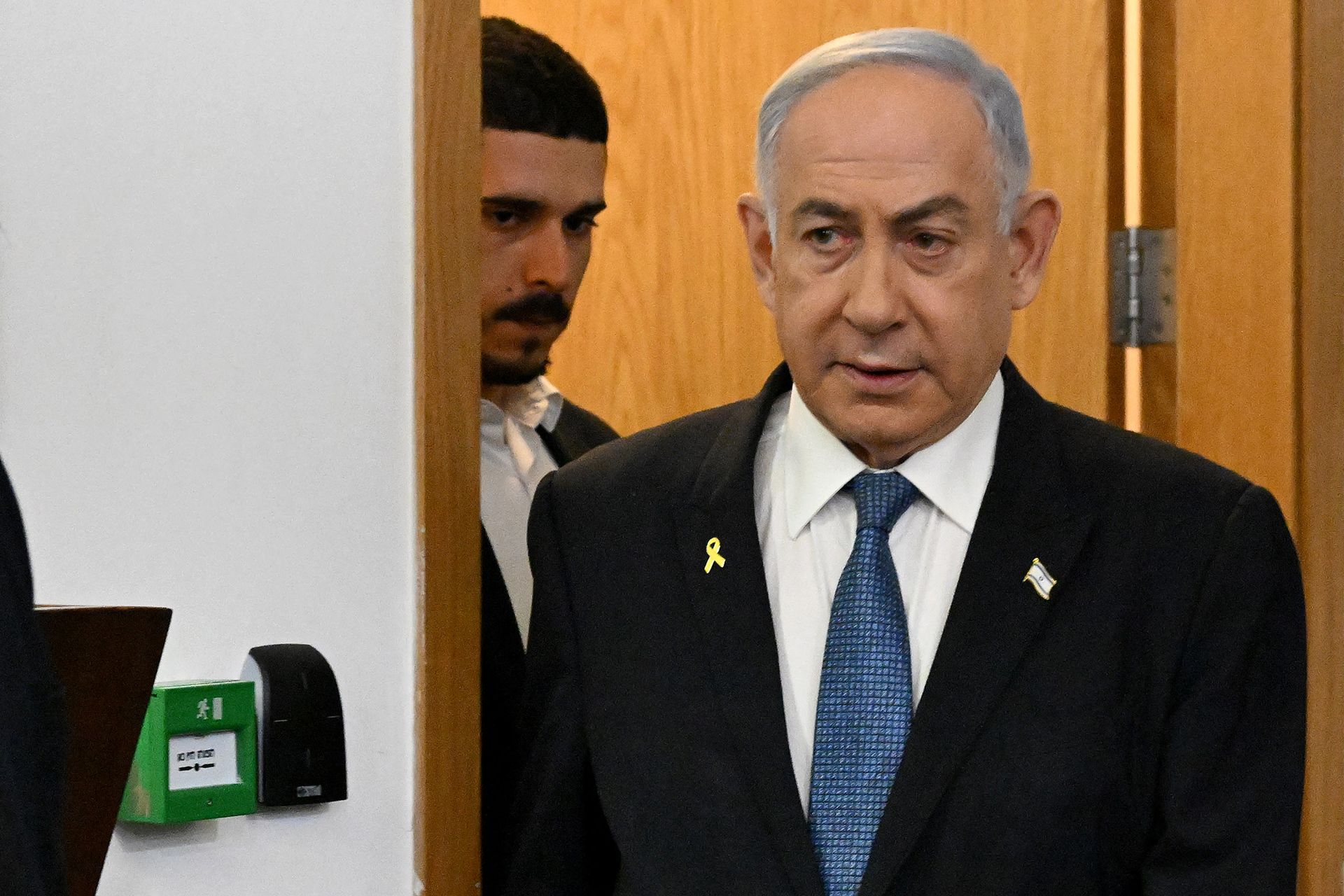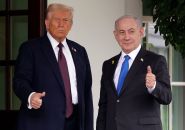- Home
- Middle East
- Israel Mentions ‘Progress’ Towards An Agreement On Hostages In Gaza

©Debbie Hill / AFP
Israeli Prime Minister Benjamin Netanyahu on Monday ‘cautiously’ referred to ‘progress’ towards an agreement on the hostages held in the Gaza Strip since the Palestinian Hamas attack in October 2023, one of the conditions for a ceasefire.
Indirect negotiations last week in Qatar between Israel and Hamas, mediated by Doha and Egypt, revived hopes of an agreement on a truce and the release of hostages in Gaza.
‘Everything we are doing cannot be revealed, but we are acting to bring them home’, said Mr Netanyahu in an address to Parliament.
‘I would like to say cautiously that progress has been made and that we will not stop until they have all returned’, added the head of government, without specifying on which points discussions had progressed.
During the unprecedented attack by the Islamist movement Hamas on Israeli soil on 7 October 2023, 251 people were kidnapped. Of these, 96 remain hostages in Gaza, 34 of whom have been declared dead by the army.
Hamas and two other Palestinian groups, Islamic Jihad and the Popular Front for the Liberation of Palestine, claimed on Saturday that a ceasefire agreement was ‘closer than ever’.
‘Most of the points concerning the ceasefire and an exchange of prisoners have been agreed’, a Hamas official told AFP, referring to an exchange between hostages in Gaza and Palestinians imprisoned by Israel.
Despite intense diplomatic efforts, no truce has been concluded between Israel and Hamas since the one that lasted a week at the end of November 2023.
The main stumbling blocks to date have included whether or not a ceasefire should be permanent and how the Gaza Strip should be governed after the war.
Three Israeli soldiers, two aged 21 and one aged 22, died in combat on Monday in the north of the Palestinian territory, the army announced.
The war in Gaza was triggered by the attack on 7 October 2023, which resulted in the deaths of more than 1,200 people on the Israeli side, most of them civilians, according to an AFP count based on official Israeli figures.
More than 45,000 Palestinians were killed in the Israeli military campaign in retaliation, the majority of them civilians, according to data from the Hamas government's Ministry of Health for Gaza, deemed reliable by the UN.
Israeli Defence Minister Israel Katz admitted on Monday that his country had killed the leader of the Palestinian Islamist movement Hamas, Ismail Haniyeh, in Tehran in July.
He also threatened to decapitate the leadership of the Yemeni Houthi rebels who fired a ballistic missile at Tel Aviv on Friday night, causing 16 minor injuries.
Mr Netanyahu said earlier on Monday that he had asked the Israeli armed forces ‘to destroy the infrastructure’ of the Houthis.
Since the start of the war in Gaza, these Iranian-backed rebels have launched numerous attacks against Israel in solidarity with the Palestinians. The Israeli army said on Tuesday that it had intercepted a new ‘projectile’ fired from Yemen before it entered Israeli airspace. Sirens sounded in the centre and south of the country but no injuries were reported.
Mr Netanyahu also said on Monday that he wanted to sign new peace agreements with Arab countries, like those negotiated in 2020 by Donald Trump's United States, which saw Bahrain, the United Arab Emirates, Morocco and Sudan establish formal ties with Israel.
In particular, Washington is pushing to normalise relations between Israel and Saudi Arabia.
‘The moderate Arab countries see Israel as a regional power and a potential ally. I intend to take full advantage of this opportunity’, said Mr Netanyahu. ‘Together with our American friends, I intend to expand the Abraham Accords and thus change the Middle East even more radically.’
In an apparent reference to Syria, where a coalition of rebels led by radical Islamists seized power on 8 December, he reiterated that his country would not allow ‘terrorists to settle on its borders’.
Just hours after the fall of Syrian President Bashar al-Assad, the Israeli army deployed in a buffer zone separating the two countries on the Golan Heights.
The UN denounced this as a ‘violation’ of a 1974 disengagement agreement between Syria and Israel.
With AFP.
Read more



Comments